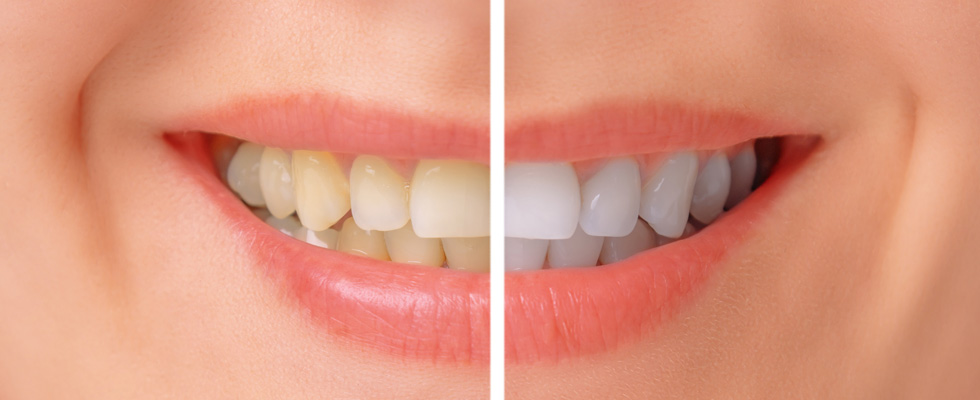
Tooth Whitening
Tooth whitening is a simple way of lightening the color of teeth without removing any of the tooth surface. It does not make a color change, but lightens the existing color of your teeth.
Tooth whitening is indicated in patients with slight discolourations on their teeth.
There are two types of teeth whitening:
Barrier whitening (In-Office teeth whitening)
Tray whitening ( At - home whitening)
PROCEDURE OF TEETH WHITENING?
The dentist applies a chemical barrier to the gums, which will protect them during the complete procedure. The whitening solution is then applied to the teeth and the chemical is then activated using heat, or a combination of heat and light. Once the whitening process is finished, the barrier will be removed in one piece. If the tooth has been root treated, then the procedure for whitening of such teeth differ, and the canal of the teeth is re-opened and whitening product is put in.
HOW LONG DOES THE PROCEDURE TAKE?
The procedure normally takes an hour. Number of sittings depends upon the requirement of shade lightening required by the patient, and also the initial shade of the tooth.
WHEN DOES WHITENING WORK?
Whitening lightens yours existing tooth color. For a change to specific chosen shade, veneering is an option. Whitening works on natural teeth. It will not work on any type of “false ” teeth, this includes, dentures, crowns and veneers. If dentures are stained or discoloured, it may be worth visiting the dentist and asking to clean them. Stained veneers, dentures and crowns may need replacement.
POST TEETH-WHITENING AFTER CARE:
You will receive instructions post tooth whitening as to what has to be done to maintain the stable colour of the whitened teeth, and what precautions need to be taken. Each individual patients lifestyle needs to be assessed, but maintaining a good oral hygiene and regular visits for cleaning the teeth will help to maintain the effect for a longer period of time. Also some food stuffs and liquids which may cause staining and discolourations may be noted down according to your habits and intake, so that you wiil be guided to curtail using them. Some may find teeth becomimg sensitive post whitening, but this is normal and it may wean off after a short while.
Frequently Asked Questions:
Everyone is different, and just as our hair color and skin color differ, same way our teeth also differ. Some teeth have a yellowish tinge; some are more beige – and very few are actually ‘white’. Teeth also yellow with age and can become stained on their surface by food and drinks such as tea, coffee, turmeric. Calculus and tartar also affects the color of the teeth but these are external and can be removed by the procedure known as scaling and polishing (cleaning). However, in some cases the stains are intrinsi ( inside the teeth) – this can be due to side effects of antibiotics or cracks in the teeth which may take up the stain.
RESULT: Treatment result may vary depending on the original shade of the teeth. Teeth will tend to darken slightly over a period of time. The effect lasts for around 1 to 3 years, although sometimes it can last longer owing to your habits and lifestyle.
Over the counter kits are not recommended as t hey contain only a small amount of hydrogen peroxide which makes the product less effective. Some also contain mild acids, while others are abrasive, hence not recommended. Although these products are cheaper, whitening is a complicated treatment procedure and should only be carried out by a dentist after a thorough examination and assessment of your teeth. It is very important to follow the instructions of dentist given during and after the treatment, and make sure you follow the post whitening follow – up appointments as recommended.

